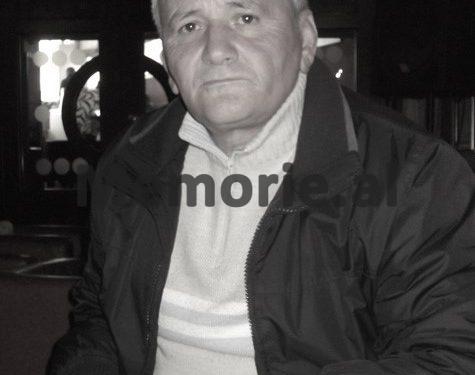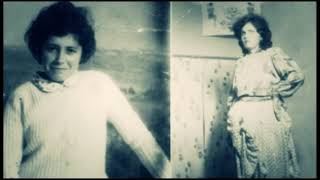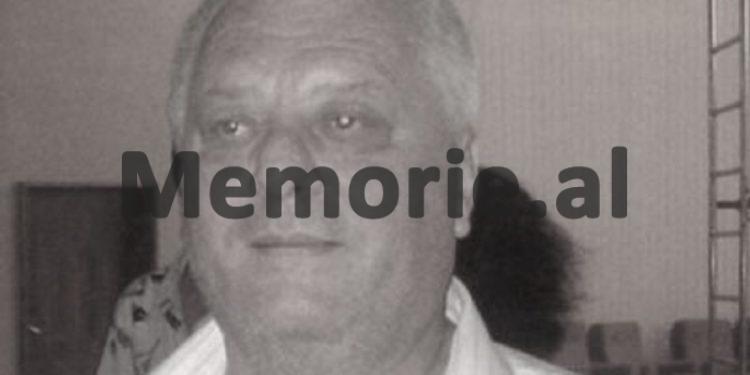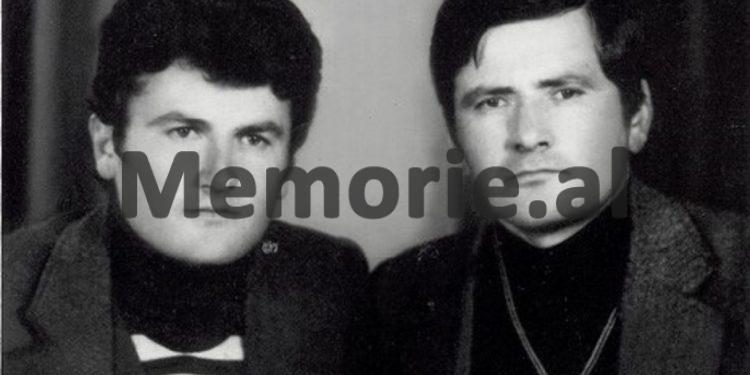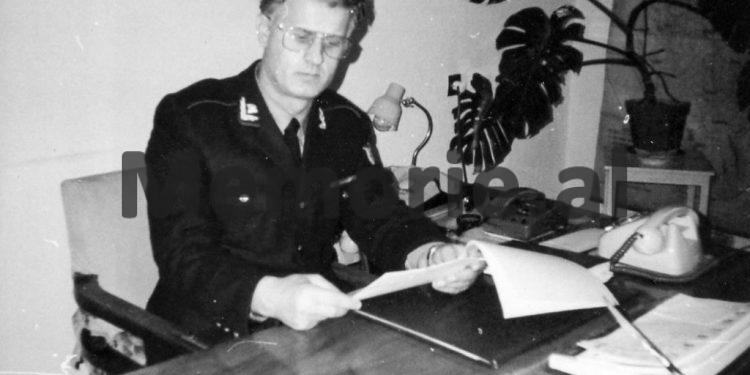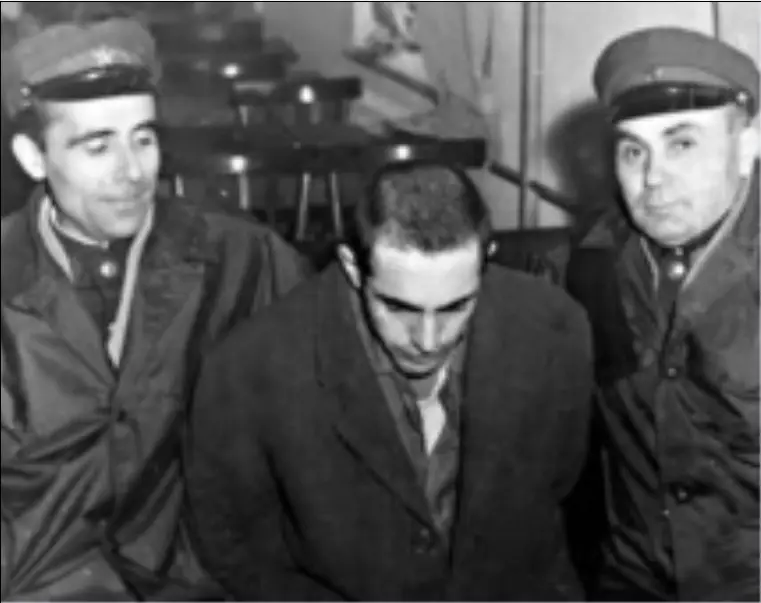By Elisabeta Ilnica
The third part
The ex-prisoner: “After 1990, I could kill the investigators for a fee, for 200 thousand lire, after several people approached me to do that”!
Memorie.al / He were 21 years old when he was sentenced to 21 years in prison. Agim Akcani is among the three former political convicts, survivors of the event of 1975, when two shootings were signed and six other people were given a total of 115 years in prison. They were called members of the “Baldushku saboteur group”, which, as the investigators of the case concluded, these eight villagers of the area participated in; “criminal organization against the people’s power, developed agitation and propaganda, with the aim of undermining the people’s power, as well as carried out the act of diversion, causing a damage to the socialist economy in the amount of ALL 359,983.80”. All these accusations were raised after the deaths of 98 Dutch cows (most of them slaughtered for meat), which were allegedly poisoned with mercury and other toxic substances.
Continues from last issue
Rifat Daja, Nuri Allmuça, Selman Balla, Bashkim Allmuça, Agim Akçani, Emine Shima, Nadire Shima and Latif Daja, were the people who were called members of the “Baldushku saboteur group”.
As the investigators of the case concluded, these eight villagers of the area participated in a criminal organization against the people’s power, developed agitation and propaganda, with the aim of undermining the people’s power, as well as committed the act of diversion, causing damage to the socialist economy in the amount of 359,983. 80 ALL.
All the charges were brought after the deaths of 98 Dutch cows (most of them slaughtered for meat), which were allegedly poisoned with mercury and other toxic substances. About this tragedy, one of the investigators of this “group of saboteurs”, Dilaver Bengasi, has recently spoken in the media. At that time he was an Economic Crime investigator, but even now he justifies the “saboteurs” as real, as well as the event. However, he stated that he did not agree with the shooting of two of the accused, such as: assistant doctor Rifat Daja and Nurse Nuri Allmuça.
Both were shot somewhere in Albania, but to this day, their graves are not known. The investigator and the drafter of the indictment distanced himself from the shooting, saying that the decision was the Court’s, but Agim Akcani verified Bengasi’s signature on the execution document of Daja and Allmuça.
Agim Akcani was 21 years old when he was sentenced to 21 years in prison. This person is among the 3 former political convicts who survived the event of 1975, when the executions of Daja e Allmuça were signed, as well as six other people, they were given a total of 115 years in prison. Here is what he confesses in the third issue of our interview.
Mr. Akcani, how was the room, the cell, where you stayed in the investigation?
During the entire time of the investigator, for one year I stayed at 313, (Tirana Prison, which is still there today on “Jordan Misja” Street), I only changed the floor. Once the first and then the second. As I said, I stayed twice in the cell, with 3 different detainees.
The room was 1 and a half, with 2 and a half. There were blankets and a board. A half-liter gourd and one was with water, the other was needed to urinate. There were also differences. You could even fill this gourd “with body water”, because there were two of us. If the investigator was “in his heart”, he would take you out to the bathroom ahead of time.
Was it on schedule, going to the toilet?
Yes, only twice a day. With schedule. Sometimes we couldn’t even go to the toilet, because we could have another schedule: that of being beaten by the interrogators. So when we came back from uncle’s, the gourd was full, we were forced to wish on the board in the room…!
What about the food?
Food was three times a day. But just like with urination, the same thing happened with food. They used to do it in Castile, since when it was time to get the food, a few minutes before, the investigator would take us to the uncle’s room. These were methods of psychological destruction.
How about a shower?
Do not remind me. I never saw warm water with my eyes for a year. The most frequent shower was the buckets of water on the muzzle, to be mentioned after the investigators…!
Did you have an idea of the time, during your stay in the investigator, how did you orient yourself for the date, the month?
In the morning, they took us out for airing, this was the only moment when I could understand what was happening, as I had lost track of time. At 313, there used to be some poplars that are no longer there today. There we learned what month it might be. Because we looked at the buds, then the leaves were released, then they started to turn yellow, until they fell.
The month was not clearly understood, but at least I understood what season it was. I often tried to understand the date or month, through the papers that were brought to us for signature, but surprisingly, they were always missing. It was an empty place. As it seems, this was a tactic of the investigators, to lose the memory and mind of the prisoners.
After the investigation, you appeared in court. Did you go as a group in the same car, or separately?
Personally, I went separately, but I believe it was the same for others. Not with an autoburg, but a police or army car.
What do you remember from the trial?
It’s weird. I remember everything from my life in detail, but I remember the trial very vaguely. I don’t know why, but I believe because we had fallen a lot physically and morally. I was at a point where I thought I’d rather be dead than alive. The investigation had tired me so much that I said I would rather die than live under torture.
Was the whole group at the trial?
I don’t know why only one of us in the group was missing. Even what the State Security called; “Kapobanda”. Latif Daja is the brother of Rifat Daja, who was shot. Latif himself was sentenced to 25 years in prison.
Why 25 years in prison, if he was a “Kapobanda”?!
I don’t know what happened. The assembly of the process is known only to the investigators. I have no idea why, but that’s all I found out. That Dilaver Bengasi, when he met Latif, told him: “It wasn’t your brother to be shot, but you”! Absurdities of dictation…?!
Were you convicted directly after one court hearing, or several?
Punishment could be given in one session, but many were done. I don’t remember their exact number. They had a style: in order to justify the criminal organization, they also made the process, as bigger, with many sessions, as if to show that here, we are discovering the enemies, we are hitting them with evidence and testimony.
Have you been asked during these sessions?
They didn’t mind asking questions because they were sick of us not answering the truth. The process was a mountain of lies and if we were asked again then it would be blatantly obvious the assembly of the ghost file. The truth would come out, that we would be convicted innocent. Each of us had a policeman by his side and we stood up and sat down on orders. Under maximum supervision.
Were the investigators present during the court proceedings in the hall?
Of course yes. These investigators were: Dilaver Bengasi, Dino Leli, Kosta Gazeli, Fahri Kraja, Koço Josifi, Kadri Ismailati, Bujar Jazexhiu. I see these people every day, even today. Even now that we are talking. I am still haunted by their cruelty.
Are these former investigators still alive and have you had the courage to meet any of them after your release from prison, or even nowadays?
As far as I know, they are alive, except for the investigator Bujar Jazexhi. I haven’t had the courage to meet them, because with these people, there are two ways: Either they are spoken to and “spoken to well”, or they are ignored. They are criminals and if I chose the first path, I would have to kill them. I’m telling you something: I was offered people who, for 200 thousand lire, were ready to kill them one by one. Some even less. At the beginning of democracy, 200 thousand lire was a lot and I had it, because I was among the first to immigrate to Italy.
I had many, many more; I could kill dozens of persecutors, by means of contract killers. Like me, many others, former political prisoners, could have acted, but we refrained. I have refrained. If I killed them, I would also become a criminal. I wasn’t like that, I’m not like that. I already have a wonderful family. I have a daughter that I don’t want to have a criminal father, but a noble father, who knows how to forgive and see life ahead.
I have been in political prison, but if I was in criminal prison I don’t believe my daughter would be so proud of me. The names I mentioned above, as you see, force them to commit a crime, but it is better to stay away from them, to run away. It is these investigators who shot two people and gave a sentence of a century and a half in prison for the rest of us. Personally, I was sentenced to 21 years in prison.
How did you feel when you heard the decision, for 21 years in prison?
During the suffering in the investigator, this sentence seemed like salvation. I learned the reality where I lived, in a system that deliberately punished innocent people.
What about the two people, who were sentenced to death, how did they react?
They did not react, they were numb. They didn’t speak. Because despite the fact that the death penalty was pronounced, we could not speak without asking them. When asked, then they spoke. To be more precise, their statements are in the minutes, which you already have…!
When did you learn to shoot them?
Their fate seemed to be sealed right there. The rest of us were taken out and taken to the kaush, while they were not. I never saw them again after leaving the trial and later learned from Spaçi’s friends that they had been executed.
Bengasi has not admitted at any time that he punished you or that he shot the other two from the group. He says he was just the investigator, the court decided…!
I was his defendant and I know this: That he is the originator and executor of this criminal act for me and others. He has convicted innocent people, by the hundreds. If there is ever justice, even 90 years old, even 100, even on the verge of death, he must be punished, as the Nazi criminals were and are being punished today. Bengasi knows, not only Baldshku, but also about the tunnels of Linza, where Rifati and Nuriu are located.
I also know about Mount with Pits, Priest’s Hill, Beshir Bridge and finally, its silhouette, I saw it on July 2 of Embassies. It is good to say something to family members, that there are mothers who are still looking for their sons, sons are looking for their fathers. Benghazi should show the unmarked graves, but also the graves that have no sign. He knows the graves of dozens of those who were shot, so he should tell them where they are, so that the family members can at least find their bones, so that they have a place to mourn them.
Do you think he knows where the graves of Rifat Daja and Nuri Allmuça are?
As far as I know, Bengasi has put his signature on the paper like a pig.
Often the prisoners tried to write a letter of explanation or a request for forgiveness to Enver Hoxha. Did you also try to write them, since you felt innocent?
No. Before I was arrested, I knew very well the system of communism and especially Enver Hoxha. The first weeks in the investigator, I still thought that; “Hey, Enver Hoxha still hasn’t found out that he is a grandfather, that if he knows – he doesn’t allow these things, for the innocent to stay in prisons.” And other fantasies like these, I thought full. Month after month I realized that communism, Enveri and dictatorship are one and the same.
It was clear that even the investigator had an instruction for each case. I understood that the system of communism lived with the prisoners, they were not paid, they were worthless people, slaves to keep the power standing. The State Security, the investigator of the entire state apparatus, was a product of Enver Hoxha. He was the master criminal and these were his offspring.
Where were you taken after the sentence?
After communicating the decision to me, I was once again returned to the investigator. Kadri Ismailati took me. Deputy Director of the Directorate of Internal Affairs of Tirana, together with his lackeys. As if he was taking advantage of me, he told me: “The party is like a mother, it throws you with one hand and waits with the other.” These 21 years in prison, this mother will give you another 21 days, in case you behave well. It’s in your hands. Otherwise, you will be for 21 years, in gallery no. 7, in Spač…”! It was an attempt to recruit, to become their collaborator.
I remembered that upon receiving the punishment, I would escape the wood, but there I was beaten peacefully, for the last time. Because I told them: “This kind of mother, who gives you 21 years in prison, being innocent, this is not a mother, but a whore…”! There they punched and kicked me and what they found in the interrogation room, until they left me unconscious. Kadri Ismailati, the hand himself, beat me the last time in the prisons of the dictatorship, after that, I was never touched again. I escaped from the wood. They took me to the cell, next to Prison 313.
Act-accusations and punishments
After the investigations started on November 10, 1975 for the death of the cows, the indictment was published on December 7, 1976, against the arrested group, with the following points:
– They took part in a criminal organization against popular power.
– They have developed agitation and propaganda, with the aim of undermining the popular power and have carried out the act of diversion, causing damage to the socialist economy in the amount of ALL 359,983.80.
– These crimes provided for by article 70 and 73/1 in combination with article 76 of the criminal code”
The case was first tried in the People’s Court of Tirana. The trial process began on January 24 to 27, to end on January 31, 1977, with the relevant decision:
1.- Rifat Daja, born in 1949, medical assistant, (Latif Daja’s brother) sentenced to death by firing squad in 1976. (Family members have not found the grave even today).
2.- Nuri Allmuça, born in 1939, nurse, sentenced to death by firing squad in 1976. (Family members have not found the grave even today).
3.- Selman Balla, born in 1944, food processor, sentenced to 22 years in prison. Has died.
4.- Bashkim Allmuça, born in 1918, high school teacher, sentenced to 18 years in prison. Has died.
5.- Agim Akcani, born in 1953, brigadier, sentenced to 21 years in prison.
6.- Emine Shima, born in 1955 (mother), sentenced to 15 years in prison. He died in prison.
7.- Nadire Shima, born in 1952, cow milker, Emina’s sister, worker, sentenced to 14 years in prison. (Live).
8.- Latif Daja, former head of the sector, was a worker at the time of his arrest. He was sentenced to 25 years in prison. (Live). Memorie.al
The next issue follows




